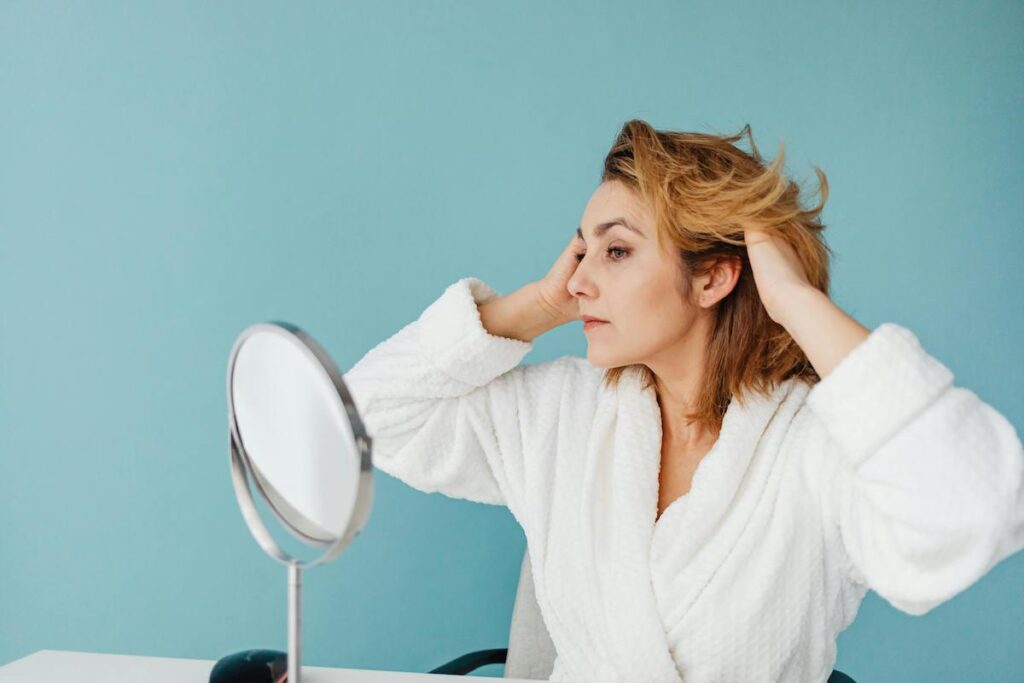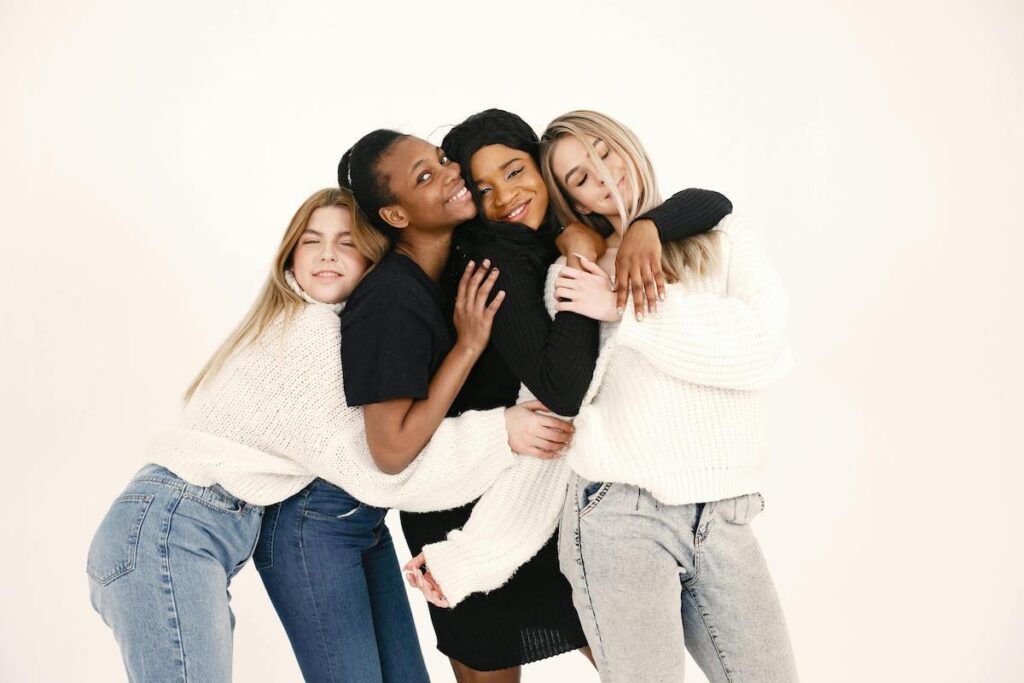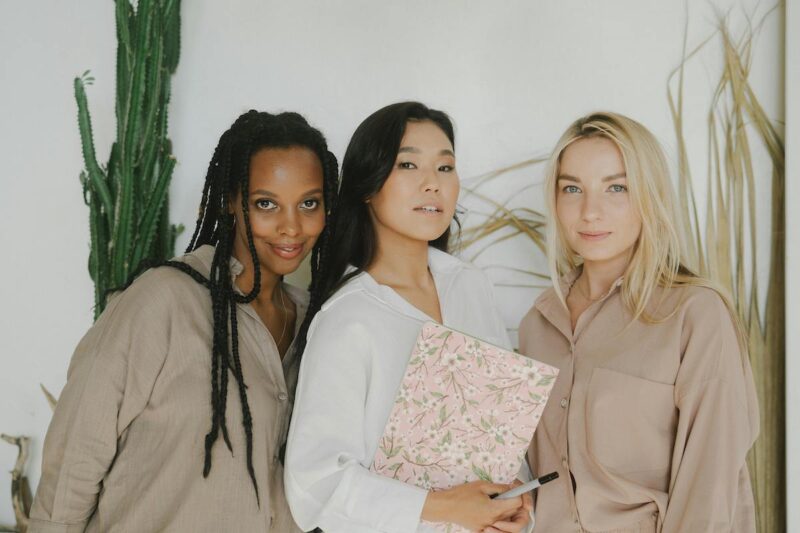What woman hasn't felt a certain amount of anxiety when she sees the unusual mass of hair left on her brush or in the shower after shampooing? This fear of going bald is very real, even if - for a woman - the probability of going completely bald (the literal definition of "baldness") is highly improbable. This is because female and male pattern baldness do not develop in the same way, in the same areas of the scalp, or at the same rate.
Our bodies - and our hair - "speak" to us. You need to know how to listen to it. Hair, for both men and women, is a reflection of our health and psychological well-being. Hair that's thinning, too fine or damaged gives the impression of someone who's sad, tired or even neglected. On the other hand, beautiful, shiny hair, dense and supple, reflects a personality that is full of energy, happy and at ease with itself - in short, attractive.
So don't ignore the cries for help from your hair at the very first sign. By doing so, it will be easy to treat these symptoms from the outset to avoid a predicted catastrophe. There are natural, effective solutions - without surgery - to combat hair loss in women of all ages and hair types.Female alopecia is not a taboo subject, it doesn't have to be: follow the guide to help your hair grow back strong and healthy for a long time to come.
Female androgenetic alopecia
This is the main cause of hair loss. It is estimated that The proportion of women affected by the effects of androgenetic alopecia around the age of 40 is 1 in 5. The figure rises to 1 in 4 around the age of 60, but it is common to find that the hair falls out too much and becomes thinner much earlier.
Main triggering factors
Hormones and women's hair: dangerous links...or not! Puberty, pregnancy(s), the menopause - a woman's body is subject to intense hormonal variations throughout her life. But hair depends on this hormonal balance: schematically, female hormones protect the hair, while male hormones (androgens) have the ability to potentially harm the hair when the scalp is genetically predisposed.
These 3 periods influence the life of women's hair:
- puberty: transitional phase par excellence, if no aggravating factors (see below) are identified, temporary hair loss will be of no consequence
- Pregnancy: women are protected by their hormones during pregnancy and - where applicable - while breast-feeding. Many women notice that their hair is particularly beautiful and abundant during this period, but beware of the risk of post-partum hair loss !

From adolescence to the menopause, women's hair is put to a severe test

– menopause : the opposite phenomenon, in a way, with androgens remaining stable and oestrogens decreasing, signs of baldness can then set in permanently from the pre-menopause onwards: massive hair loss, fine hair, loss of density, poor hair renewal as the hair follicles produce increasingly fragile hair, etc.
Aggravating factors
- deficiencies: vitamin D, ferritin, animal or vegetable proteins, unbalanced and/or inadequate diet
- stress - intense stress that can lead to trichotillomania, particularly in teenage girls
- thyroid disorder
- autoimmune diseases (alopecia areata)
- certain molecules used in medicines
- contraceptive dosage (pill, IUD or patch)
- polycystic ovary syndrome
- hairstyles (causing traction alopecia) and cosmetic manipulations (straightening, chemical colouring at too frequent intervals) which can weaken the hair fibre, making the hair fragile and brittle, although brittleness should not be confused with hair loss.
Recognising the signs of female pattern baldness
Hair that falls out more than usual and ends up on the floor, your pillow, your brush and accumulates in the shower? And what about an increasingly wide parting in the middle or thinning hair at the temples? Androgenetic female hair loss can be insidious, progressive and diffuse, leading to a general thinning of the hair mass, which makes the problem difficult to identify quickly.
While it's accepted that you can lose 50 hairs a day, or even a good hundred, without it really being a cause for concern, you should nevertheless remain vigilant if you notice that, day after day, there seems to be more hair falling out than is normal for you and, above all, that it seems never-ending (several weeks). As long as a person loses 100 hairs a day and regrows the same number of hairs of the same quality, hair renewal is balanced and all is well. The problem arises when you lose more hair than grows back, and when this regrowth becomes thinner and thinner (loss of hair density), a sign that the rate of hair growth is out of balance, too fast.

There are natural solutions for slowing down hair loss at the very first signs of it
What to do to stop hair loss in women at the very first signs
- Blood analysis to detect any deficiencies and take the appropriate treatment without delay: "special hair" food supplements (B group vitamins, iron, zinc, cysteine and methionine), or simply review your diet and lifestyle
- a check-up to detect the onset of the menopause, a thyroid disorder or, you never know, a health problem that could turn out to be serious
- talk to your doctor, who can modify your medical treatment or recommend a change in contraception to one that is better suited to your hair's needs - without forgetting the primary purpose of the medication
- Adopt a new hair routine that respects the hair by opting for natural hair care products, more flexible hairstyles and looser braids. We space out or even stop using chemical colouring, straightening, weaving and other styling methods that damage the hair fibre
- Adopting a healthier lifestyle also means making time for yourself, which can help you to reduce stressthe cause of many ills and a recognised aggravating factor in hair problems
- Choosing non-invasive solutions to combat early hair loss, such as densifying powder or wigs (hair supplements), will camouflage baldness but in no way treat it or slow its effects. They can complement a genuine anti-hair loss protocol
- Get to the heart of the problem by starting an intensive anti-hair loss programme. In addition to the above recommendations, you can really slow down the effects of female alopecia by specifically-designed natural cosmetic treatments : high-performance lotions (Laits Clauderer) and serums with beneficial ingredients such as essential oils of rosemary and sage, among others, or plant oils (sesame, jojoba, wheat germ) work in synergy on the scalp to penetrate the hair follicle to regenerate the hair and stimulate regrowth. The earlier you start, the quicker the results appear and the longer they last.
Losing your hair is always a source of stress, especially for women. There are many causes of early female hair loss, but that doesn't mean there's nothing you can do about it. Thanks to Clauderer's hair care programmes, it's easy to regain beautiful hair for a long time to come.

